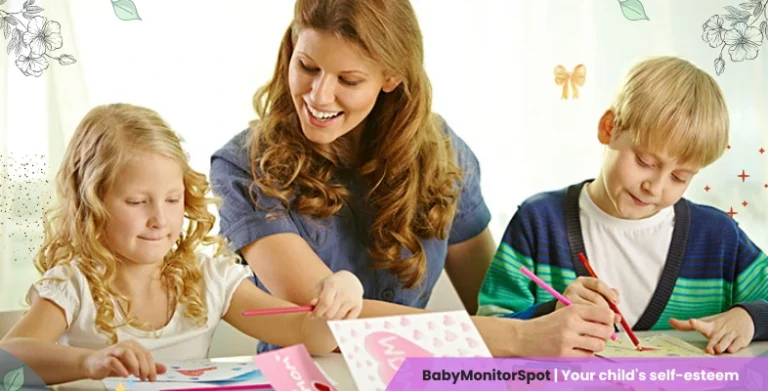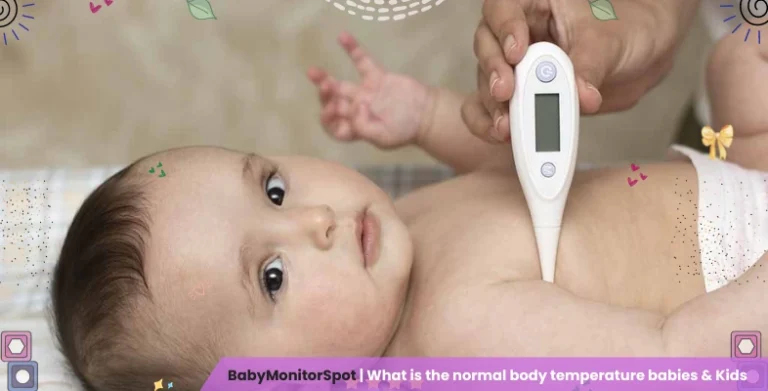7 Easy And Simple Ways To Develop Your Child’s Self-Esteem In 2023
-
Ejaz
- Published
- Updated 2023-10-23

Many factors contribute to a child’s self-esteem, including how they feel about themselves, their family, their peers, and their school. But what if your child’s self-esteem is lower than you’d like? How can you help your child build self-esteem and become a confident and well-adjusted adult? A child’s self-esteem is often determined by how their parents see them. It may seem like a simple concept, but it can significantly impact how the child views it.
The good news is that you can do a lot to build your child’s self-esteem. In this guide, I will discuss why you care about self-esteem, how parents can build self-esteem and signs of high and low self-esteem in childrens. And at the end, I will discuss some FAQs.
Why do you care about your child's self-esteem?
Low self-esteem often leads to poor social skills. Those who feel uncertain about themselves sometimes feel shy or insecure when interacting with others. Children who are in a controlling relationship have a hard time standing up for themselves.
They might not feel safe saying no to their partner. Kids with low self-esteem find it hard to cope when they make mistakes, lose, or fail because they have not taken the time to learn how to sell products.
How do you develop your child's self-esteem? (7 Easy Ways)
Good self-esteem does not just happen overnight. It starts as early as babyhood. Parents must ensure that their children are nurtured and supported. The key to a happy and healthy child is to provide lots of affection and love.
Parents can read children’s self-esteem books like
- Your Child’s Self-Esteem by Dorothy Briggs.
- The Power of Showing Up by Daniel J. Siegel (Audible)
- No-Drama Discipline by Daniel J. Siegel (Audible)
- Toddler Discipline for Every Age and Stage by Aubrey Hargis (Audible)
- Raising Good Humans by Hunter Clarke-Fields MSAE (Apple Podcasts)
Toddlers and young children’s self-esteem develops when they can use their new skills. It’s also essential when a parent pays attention, lets a child try things, smiles, and shows that they’re near the baby.
Self-esteem can improve by doing just about anything, from trying new foods, sports, and activities to making things like crafts or art and learning to do different things.
Every kid is different. Every child needs to feel good about themself. Sometimes, children have to go through experiences that hurt their confidence. Even though a child’s self-esteem might be low, it can be raised.
Here is some point parents can practice to develop self-esteem in their children and make them happy:
1. Allow your child to do different things
Kids need to keep learning new things. They have a long way to go before they can take their first steps as adults. Babyhood is an inspiring time in a child’s life. As your child grows, it’s good to give them chances to learn new things, such as learning to read different books and play sports.
2. When teaching kids how to do things, help them at first
And then let them learn from their mistakes. Encourage your child to try new things and take chances. Make new challenges neither too complex nor too easy.
3. Praise your child, but remember to use good judgment
You know you’re a proud parent when you praise kids. Praising kids in the right way is essential. It helps them feel good about themselves and helps them.
3.1) Don't overpraise
Praise is meaningless if it’s not earned. If you tell your child that he played a great game when he knows he didn’t, praise that is not made feels hollow and fake. It’s better to say, “It wasn’t your best game, but we all have off days. You should be proud of yourself for not giving up. Tomorrow, you’ll be back at your best.
3.2) Praise the hard work
Avoid focusing praise only on results or fixed qualities. Focus instead on the behaviors or habits that helped the baby get where the baby is.
4. Importance of being a good role model for baby
Putting effort into everyday tasks is the best thing you can do for others. You will be better if you make an effort in every area of your life. When your child learns to put effort into things they care about, they learn self-control and build a foundation for later life.
Be enthusiastic about your tasks; do not complain when you do not get them. That will encourage your children to be excited about their tasks too. You do not have to rush through chores and feel guilty if you leave them undone. You should enjoy the moment and take pride in a well-done job.
5. Don't give harsh criticism
Children have a strong sense of how they’re doing in life. In many situations, harsh words are not helpful, motivating, or productive. Children commonly hear negative messages about themselves, but they must learn to correct themselves with patience. Focus on what you want them to do next time.
6. Try to focus on strengths
When your child excels in a particular area, you must celebrate that and encourage it. Make sure your child has plenty of opportunities to practice these abilities. Spend less time focusing on your weaknesses and more time focusing on your strengths. It also improves your baby’s behavior.
7. Kids should be allowed to help and give
When children are taught that what they do matters to others, they start to feel good about themselves. Kids are good at helping with things like cleaning up the kitchen and doing the dishes. Good deeds help at home, perform a service, and help to build one’s self-esteem.
13. Signs of high self-esteem in children
- Faith in efforts and themselves
- Think positive about themselves
- Feeling proud about what they can do
- Confident feeling
- Accept challenges
- Make friends and help them when they need
- Perform well in class
- Participate in different activities
- Feel accepted and liked
- Face failure and show confidence to make it time time
- Not blaming circumstances in case of failure
- Try to improve every time
- Do their best in a very task
17. Signs of low self-esteem in children
- They are hard on themselves and are self-critical
- Avoid daily tasks
- Lie when losing the game
- Give up during the game
- Think they aren’t as good as other kids
- Makes excuses
- Think of the times they fail more than when they succeed
- Loss of interest in extracurricular activities
- Avoid friends
- Concerns about other opinions
- Lack of belief
- They’re not sure they can do things well
- School grades continuously declined
- Affected by negative peer
- Not confident about their efforts
- Blaming the situation and other people
- Feel difficult to accept either criticism or praise
How do children make themselves feel good about themselves?
- Give yourself a challenge and see what happens.
- If you want to be assertive, learn to do that.
- It would help if you were kind to yourself.
- The best way to develop positive self-esteem is to build positive relationships.
- Recognizing your talent and doing what you’re good at is essential. We’re all good at something.
How do I make my child feel good about themselves?
Some tips for raising confident kids.
- Remember to celebrate effort.
- Make goals.
- Kids should be given a chance to fail.
- Help the children find their passion.
- Allow them to try new things.
- Perseverance praise.
- You don’t have to be upset about mistakes.
- Don’t be afraid to model confidence of your own.
What causes a child's low self-esteem?
Severe childhood trauma such as disaster, severe illness, or grief may cause low self-esteem in the most severe cases. You will feel a sense of relief knowing all of these experiences give the children a message about the dangers of being out alone, and you’ll reassure them that everything will be ok.
Conclusion
Children tend to look to their parents for support and approval when they are young. As they grow older, they may begin to compare themselves to others. It can cause them to feel less than perfect and result in low self-esteem. A child’s self-esteem is directly related to their ability to form positive relationships with other people.
Children with a strong sense of self-worth tend to feel good about themselves and are more likely to have a positive self-image. In addition, children with a positive self-image tend to have better social skills and make more friends. I hope you enjoyed this guide about how to develop your child’s self-esteem. If you still have questions, kindly ask in the comment section. I will try my best to answer in detail.
Thanks, and keep visiting 🙂
Latest Posts






